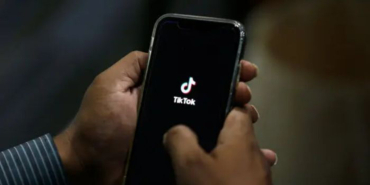Reckless Social Media Use Could Affect Visas and Jobs, Mudavadi

Kenyan youth have been cautioned about the long-term consequences of their social media activity, which could impact their prospects for international travel and employment, according to Prime Cabinet Secretary Musalia Mudavadi.
Speaking in Vihiga on June 7, Mudavadi highlighted that reckless online behavior can extend beyond the digital realm, with embassies and potential employers increasingly scrutinizing individuals' digital footprints. Mudavadi, who also serves as the Cabinet Secretary for Foreign and Diaspora Affairs, acknowledges the benefits of social media as a communication tool but emphasizes the need for responsible online engagement.
He notes that visa applicants, particularly in countries such as the United States, are now required to provide social media handles from the past five years. This measure allows immigration offices to assess potential risks posed by travelers based on their online activity.
"If you have been involved in toxic exchanges or irresponsible discussions online, your visa application may face obstacles," Mudavadi says.
Several nations are implementing policies to track social media behavior to evaluate potential security risks. In addition to international travel, Mudavadi warns that employers, both in Kenya and abroad, are discreetly evaluating applicants' social media activity to gauge their suitability for job roles. While many companies do not explicitly disclose this practice, hiring managers increasingly consider an individual's online presence when making hiring decisions.
"Your digital conduct matters. Employers may not announce it, but they are checking what you post," he emphasizes.
The influence of social media on professional opportunities has grown significantly in recent years. A person's online interactions, tone, and engagement can shape perceptions of their character, values, and professionalism. Reckless posts, inflammatory statements, or patterns of negativity can raise concerns, particularly in industries that place a premium on reputation and public engagement.
Mudavadi further cautions that the actions of a few can tarnish the reputation of an entire generation. While Kenyan youth are generally hardworking and focused, negative portrayals stemming from reckless online interactions may cast an unfair shadow over their image internationally.
"The internet never forgets," Mudavadi warns, urging young people to recognize that their digital footprint is permanent.
He calls upon the youth to harness social media as a tool for growth, networking, and productivity rather than one of discord and controversy. This is not the first time Mudavadi has sounded the alarm on social media's potential dangers. In 2024, he addressed concerns over the platform's role in facilitating Intimate Partner Violence (IPV), stressing that predators are increasingly exploiting digital spaces to manipulate and harm victims. His remarks conveyed the need for stringent regulations to curb the misuse of social media for criminal intent.








Comments
Let it affect. We will not…
Permalink
Let it affect.
We will not be silenced.
Mutazoea tu.
Add new comment